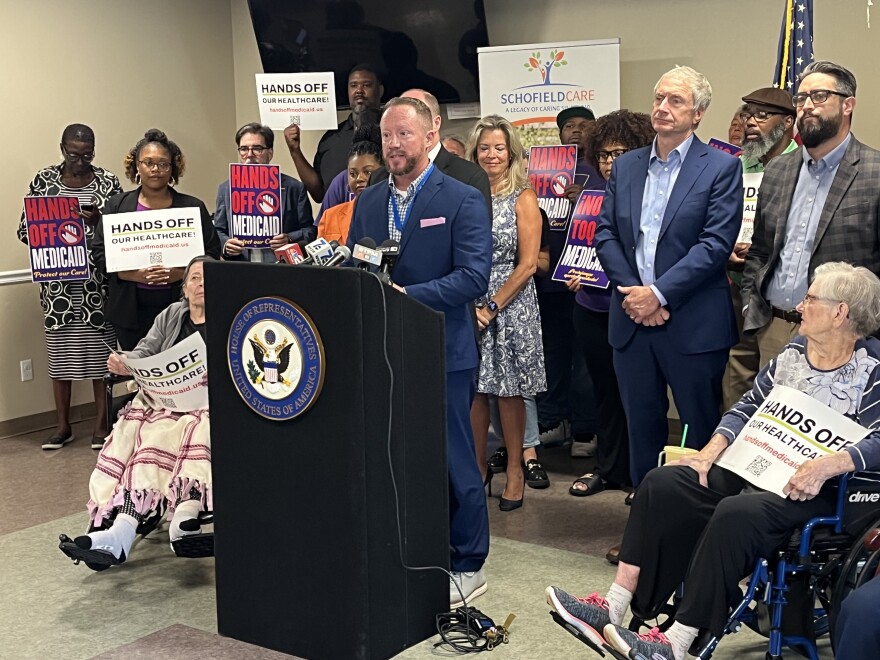Assisted care and nursing home facilities are bracing for what they say could be massive impacts to their services and capabilities.
Nearly $1 trillion in Medicaid funding is projected to be cut over a 10-year span under President Donald Trump’s tax and spending legislation known as the “One Big Beautiful Bill.” Republicans who back the plan say Medicaid, a joint federal and state program that provides health care to millions of disabled and low-income people, grew too large.
Changes include increased work requirements and cuts to provider taxes, which states use to increase their federal reimbursement. In New York, counties also foot some of the bill for Medicaid.
Much of the legislation centers around states who have opted for Medicaid expansion under the Affordable Care Act. While championed by the Obama administration, there was some bipartisanship for opting in.
With cuts to Medicaid, it puts states in a position where they’ll have to reexamine how the program is administered, and gives uncertainty to nursing home facilities where many patients utilize Medicaid. CEO of Niagara Lutheran Health System Chris Koenig, which operates the Schofield Residence in Tonawanda, is one of them.
“We're already at a point where it's not a maybe if these cuts are going to cause detrimental impacts, we're there. The next time we talk it's going to be around closures of more facilities," said Koenig. "If beds come offline for nursing homes, that means the hospitals back up, everything backs up. Then the taxpayers who pay into the Medicaid system are going to be forced to take care of their family, and they're going to have to leave the workforce."
Congressman Tim Kennedy, the Democrat who represents parts of Erie and Niagara County in Washington, believes there is time to reverse cuts to Medicaid.
“There's time to set back in motion a system that works for those that we love," said Kennedy. "Every American deserves to live with with dignity and respect, that includes having access to long term care that they need. Every family deserves the freedom to make decisions without being backed into the corner by devastating federal cuts.”
With rollbacks to premium subsidies and increases to copayments, Catherine Lord, who’s a physical therapy assistant at Schofield, said on a daily basis she hears concerns from residents about changes to Medicaid and their financial stability to continued care.
“They have worked really hard all their lives. They paid into Social Security, Medicaid, all of this where they thought that, you know they would have finances to be comfortable," she said. "It's already hard enough for them to be here and give up, being able to take care of themselves and, you know, all the things that they need. And so when they're here, they have a lot of concerns.”
Diane Belis’ parents have both been residents at Schofield. Her mother spent her last two years at the facility, and her father just recently moved in.
“Care will decline, and families like mine will be broken trying to keep our parents safe," said Belis. "Even worse, with seniors like my dad find themselves kicked out of after the facilities takes every last dime. This isn't just a bad policy, it's a betrayal of the promise we've made to our elders.”
The Congressional Budget Office estimates nearly 12 million more people will be without health insurance by 2034 under the overhaul in the One Big Beautiful Bill.
The amended bill passed the House 215 to 214 and the Senate 51 to 48. BTPM NPR asked for an interview with Congressman Nick Langworthy, the Republican who represents parts of Erie, Niagara and Southern Tier counties, but did not hear back.



